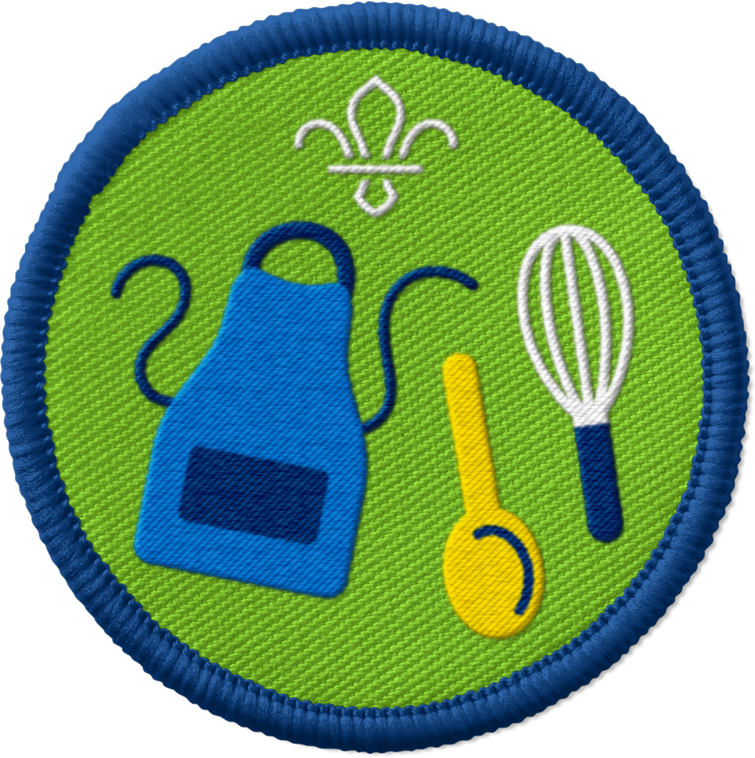
Make a sugarcane mocktail
You’ll need
- Ingredients (see card)
- Measuring cups
- Serving cups
- Knives
- Chopping boards
- Strainer/sieve
- Blender – optional
Before you begin
- Use the safety checklist to help you plan and risk assess your activity. Additional help to carry out your risk assessment, including examples can be found here. Don’t forget to make sure all young people and adults involved in the activity know how to take part safely.
- Remember to check for allergies, eating problems or dietary requirements and adjust the recipe as needed. Make sure you've checked everyone's dietary requirements and allergies then adapted the recipe as appropriate. This may include ensuring no cross-contamination during food preparation, too.
- Check if there are any items of food (or packaging) that people can’t touch or be near to or if there are items that people might not be comfortable using in the activity.
- Some people may not like certain food textures or tastes and that’s OK. Try to find an alternative for them. No-one has to use all the ingredients or be made to try foods if they’re not happy, comfortable or don’t want to.
- You could run our kitchen safety and hygiene activities, Kitchen risk bingo and Home kitchen hygiene prior to running this session.
- Remember to have a hand washing station and take extra hygiene precautions when handling food. Look at our guidance on food preparation.
- Make sure you have all the ingredients ready.
- You may want to run a kitchen safety talk and show people how to use the equipment safely, such as for cooking or chopping ingredients.
- If using a gas stove, make sure it’s on a stable heatproof surface and in a clear and open area, with plenty of ventilation. Gas can increase risk of carbon monoxide exposure. We have more guidance on different cooking methods.
Lohri takes place on 13 January every year. The event marks the passing of the winter solstice, the shortest day and longest night of the year in the region, and the beginning of the harvest season. It’s one of the most prominent events on the Punjabi calendar.
Lohri is traditionally celebrated by lighting bonfires, which communities often gather around to worship the blaze. Festival goers also mark the occasion by eating festive foods, dancing to traditional music, such as bhangra and gidda, and exchanging gifts. The bonfire symbolises Agni, the god of fire, and the worshippers will sing, chant and throw in offerings, mainly foods like sesame seeds, popcorn, nuts and sugar cane. The offerings pay thanks to the gods and ask them to bless the forthcoming harvest and bring the people prosperity and abundance.
Traditionally, on the morning of Lohri, children go door-to-door around the neighbourhood, singing and asking for sweets, nuts and money. The songs they sing are themed around Dulha Bhattu, the Punjabi Robin Hood, who robbed the rich to give to the poor – and who, legend has it, helped a poor village girl out of poverty by finding her a husband.
During Lohri, people enjoy treats such as Til ladoo (sesame seed, coconut and peanut balls made with jaggery – cane sugar), and Gud Gujak (another sweet treat made with sesame). Peanuts are given as snacks, thrown into the fire and given to children as treats, while sweets are eaten in abundance. For the main course, traditional Punjabi foods such as Sarson da Saag and Makki di Roti (a spinach dish with Punjabi flatbread) are served.
The festival is also known as Lohadi or Lal Loi, but no one is certain how the name Lohri originated. There’s also a popular theory that the name has something to do with the sweet treats consumed during the festival. Til (sesame seeds) and rorhi (jaggery, or cane sugar) are foods traditionally eaten during the celebrations, and some suggest that the words were brought together to make tilorhi, which would have eventually been shortened to Lohri.
Today you’ll be making a mocktail using sugar cane, which is a central ingredient in Lohri snacks, treats and recipes. This is because sugarcane is usually harvested in the month of January every year and Lohri celebrates the harvest.
Ingredients
(per 1 serving)
· 1/4 teaspoon (1g) black salt
· 1 tablespoon (4g) lemon juice
· 1/4 cup (52g) of lemonade or sparkling water
· 1/2 cup (77g) of diced watermelon
· 1/2 cup (58ml) of sugarcane juice
Introducing the activity
- Explain that one of the Scouts values is beliefs. Scouts always respect people’s beliefs, faiths and cultures, and everyone should be open to learn. Ask everyone why it’s important for people to learn about each other's faiths and beliefs, even if we don’t have a faith ourselves.
- Explain that if people don’t have a faith, that’s OK. They might have beliefs, values or a shared community, like in Scouts where we have shared values of integrity, respect, care, cooperation and belief. Whether you’ve a faith or not, what are your most important values or beliefs? For example, you may believe in kindness or value honesty and compassion.
- Tell everyone that today you’ll be learning about a festival called Lohri. Lohri is a festival traditionally celebrated by people from the Punjab region in India and Pakistan.
Juice time!
- Everyone should wash their hands, then give out the equipment and ingredients.
- Everyone should carefully cut up the watermelon.
- Next, measure out all the ingredients.
- Add the watermelon, sugarcane juice, lemon juice and black salt into a blender and mix it well. This step may be noisy, so some people may want to step out of the room.
- When mixed, pour the juice through a strainer into a bowl, jug or pan that’s big enough to catch it all.
- Pour the strained mixture into a glass.
- Top the glass up with the lemonade or sparkling water.
- Serve the drink with ice or a paper straw, then enjoy!
Reflection
This activity allowed us to learn about a festival called Lohri. What can people remember about the festival?
We made a drink that might be made, or similar versions of it made, to celebrate Lohri. Can anyone remember the key ingredient and why it’s important?
Lohri involves celebrations that include campfires, exchanging gifts, dancing and foods. Does this celebration remind you of any other occasions or events, either in the UK or around the world?
What are some other yummy treats you may have tried that help people to celebrate events?
Safety
All activities must be safely managed. You must complete a thorough risk assessment and take appropriate steps to reduce risk. Use the safety checklist to help you plan and risk assess your activity. Always get approval for the activity, and have suitable supervision and an InTouch process.
- Cooking
Teach young people how to use cooking equipment safely. Supervise them appropriately throughout. Make sure it’s safe to use and follow manufacturers’ guidelines for use.
- Food
Remember to check for allergies, eating problems, fasting or dietary requirements and adjust the recipe as needed. Make sure you’ve suitable areas for storing and preparing food and avoid cross contamination of different foods. Take a look at our guidance on food safety and hygiene.
To make it easier, the person running this activity may way to prep the portions ahead of time.
- There are lots of different jobs that need doing when planning, making and cooking on a kitchen. People can work in small groups or as a whole group, depending on what will work best for your group. This may be extremely beneficial for those that need help with fine motor skills.
- Make sure the objects are placed in areas accessible for everyone in the group and all the materials are at a level that can be easily worked on by wheelchair users.
- You could have print-outs of the recipe, including large print versions, to help everyone follow the instructions.
- There are lots of loud noises and different smells in a kitchen or while cooking, which may overwhelm some people. People may choose to wear ear defenders while in the kitchen, take a break from the activity or prefer to stay a distance away from the activity and that’s OK. You could use fragrance free soap or washing up liquid or have items pre-chopped to reduce noise. You might also want to keep any blending, electric whisks or noisier equipment to being used in one room and shut the door, so people have an option to step out if it’s too loud.
- Be conscious about who may be fasting when running this activity – you may want to plan it for when everyone can get involved.
All Scout activities should be inclusive and accessible.
Add some other seasonal events to your programme thanks to our occasions and events calendar
